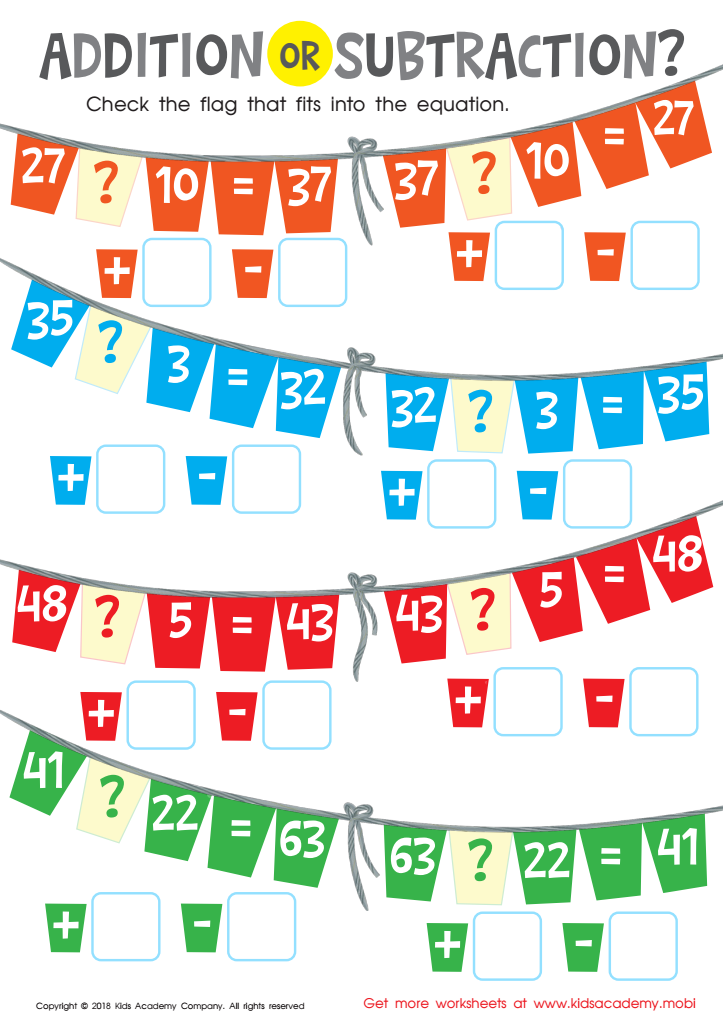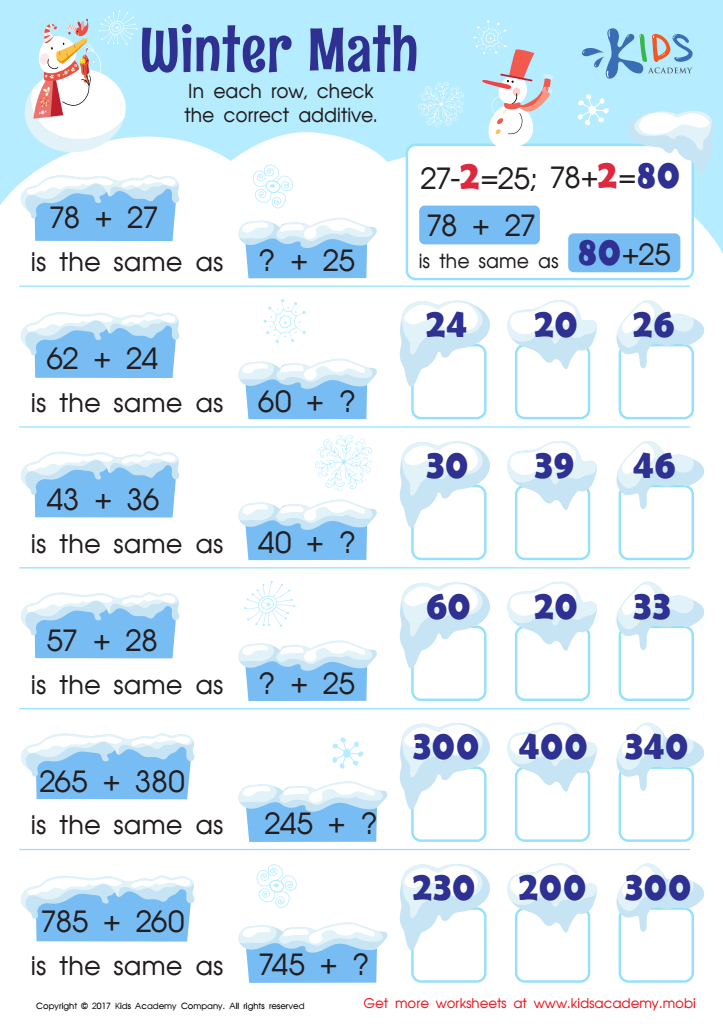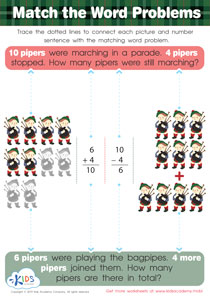Mathematical reasoning Normal Addition Worksheets for Ages 6-8
4 filtered results
-
From - To
Our Mathematical Reasoning Normal Addition Worksheets for Ages 6-8 offer an engaging way to enhance your child’s arithmetic skills. Designed by educational experts, these worksheets help young learners develop strong addition fundamentals and critical thinking abilities. Each worksheet presents age-appropriate math problems that encourage logical reasoning and problem-solving strategies. By practicing these exercises, children will gain confidence and proficiency in addition, setting a solid foundation for more advanced mathematical concepts. Ideal for classroom use or home practice, our worksheets are a valuable resource for parents and teachers committed to fostering a love of math in young students.


Tricky Problems Worksheet: Part 1


7 Continents and 7 Seas Worksheet


Addition or Subtraction? Worksheet


Free Addition Worksheet
Mathematical reasoning and normal addition for ages 6-8 are crucial elements in early education that parents and teachers should prioritize. At this age, children's brains are highly receptive and primed for learning foundational mathematical concepts. Developing mathematical reasoning helps young learners make sense of numbers, patterns, and relationships, laying the groundwork for more complex mathematical thinking in the future.
Normal addition is more than just a fundamental arithmetic skill; it's a building block for higher-level math. Mastery of basic addition not only enhances numerical fluency but also boosts confidence and problem-solving abilities. When children understand and practice addition, they develop a sense of order and logic, critical in helping them approach everyday problems systematically.
Fostering these skills early also contributes to overall cognitive development. Enhanced mathematical reasoning is linked to improved memory, concentration, and abstract thinking. Furthermore, early success in math can spark an enduring interest and positive attitude toward the subject.
By emphasizing mathematical reasoning and normal addition, parents and teachers equip children with essential tools, promoting academic success and life skills, and preventing future difficulties in math-related subjects. This strong foundation paves the way for continued intellectual development and a more profound understanding of the world around them.
 Assign to My Students
Assign to My Students
















